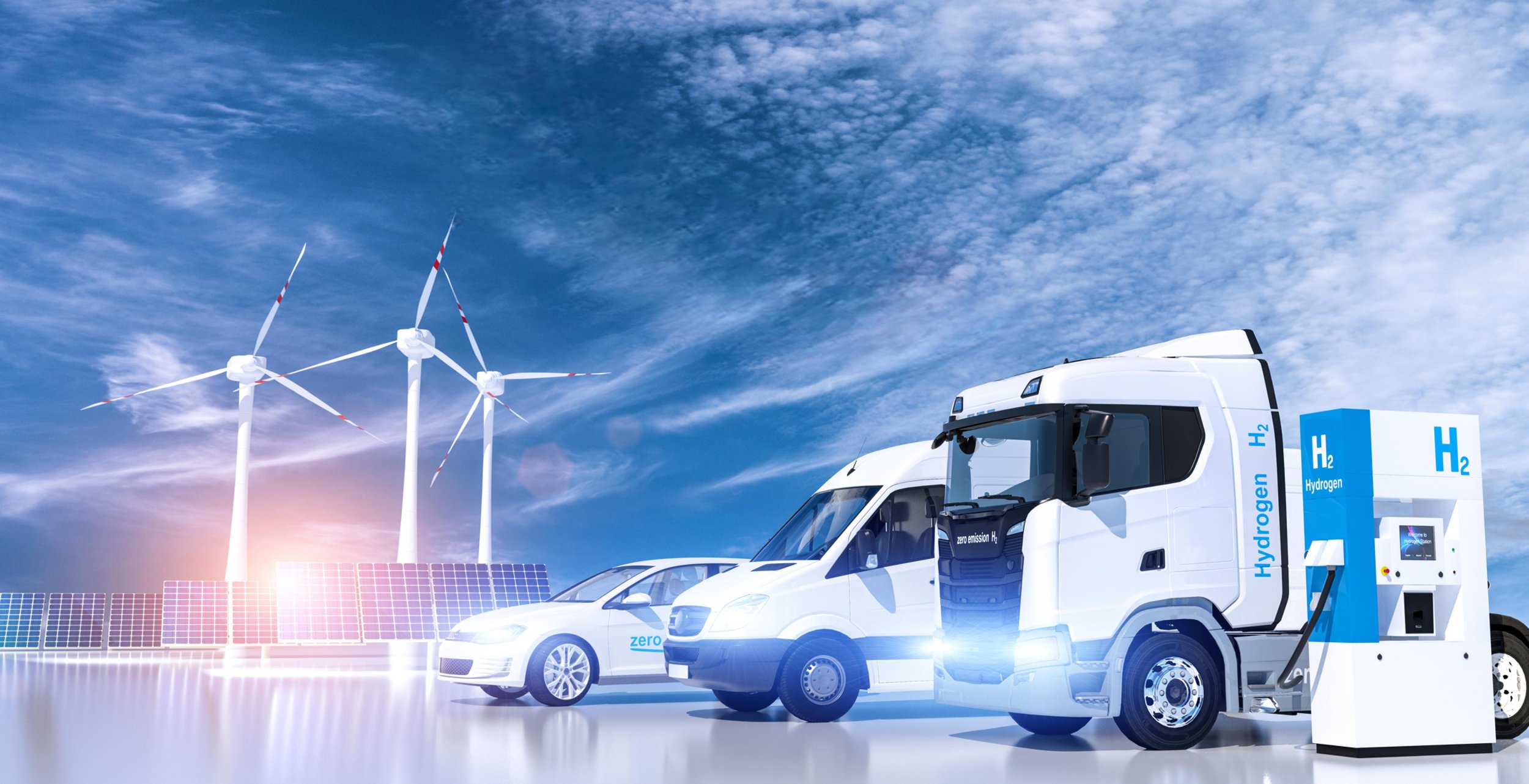
Ecoverte Hydrogen
-
Flexible Distribution Options and Reliable Supply
Ecoverte Hydrogen offers tailored distribution options to meet each client's unique requirements. Whether you collect directly from our dispensing points or opt for delivery, we ensure consistent and reliable access to our high-purity hydrogen. Our strategy focuses on establishing long-term partnerships through secure contracts, ensuring dependable supplies of hydrogen for all our partners.
-
Fueling a Greener Tomorrow
Our commitment to Ecoverte Hydrogen goes beyond energy production; it's about leading the charge towards a responsible and sustainable energy future. By joining the Ecoverte Hydrogen movement, you can play a crucial role in building a greener tomorrow.
-
Changing Transportation and Beyond
Ecoverte Hydrogen is a leading choice for fuel in the transportation sector, including fuel cell vehicles, buses, trucks, and other modes of transportation. Our hydrogen offers unmatched purity and a dedication to environmental stewardship. Together, we can pave the way for a cleaner and more sustainable transportation industry.
Why Ecoverte Hydrogen?
Hydrogen is the lightest and most abundant element in the universe, symbolized by H with an atomic number of 1. It is colorless, odorless, and highly combustible, existing mainly as molecular hydrogen gas (H₂) in nature. While it is scarce in the Earth's atmosphere due to its lightness, hydrogen is a key component of water (H₂O) and organic compounds, essential for life.
In energy terms, hydrogen is valued as a clean fuel. When used in fuel cells, it generates water, electricity, and heat, but no greenhouse gases, offering a pathway to reduce pollution and tackle climate change. Hydrogen can be produced from various sources, including fossil fuels, water, and biomass, through methods like steam methane reforming and electrolysis.
Due to its potential for wide-ranging applications in energy storage, transportation, and as a fuel for industrial processes and vehicles, hydrogen is central to efforts aimed at developing sustainable energy solutions. Its clean combustion and versatility position it as a key element in future energy systems focused on reducing carbon emissions and achieving environmental sustainability.
Revolutionizing Hydrogen Production for a Sustainable Future
While not derived from biological sources, scrap tires present an ongoing environmental challenge, remaining prevalent and problematic when not recycled responsibly. Traditional methods of repurposing scrap tires—ranging from shredding for landfill disposal, conversion into mulch or playground surfaces, incorporation into athletic tracks, blending into asphalt, to being used as Tire Derived Fuel (TDF) as an alternative to coal—fall short of genuine environmental stewardship. These practices do not adequately address the treatment or processing of harmful chemicals, with applications such as ground cover potentially leading to chemical leaching into the soil.
In contrast, our innovative approach transforms scrap tires into a valuable resource. Utilizing a proprietary gasification process, we convert these tires into 99.999% pure hydrogen, which we've branded as Ecoverte Hydrogen. Our method is a testament to our commitment to environmental sustainability, operating within a closed-loop system that ensures all harmful by-products are either effectively utilized or neutralized, with carbon emissions captured during the process.
Unlocking the Versatile Power of High-Purity Hydrogen: Transformative Uses Across Industries
Ecoverte Hydrogen stands as an exemplary fuel choice for the transportation sector, powering fuel cell vehicles, buses, trucks, and other modes of transport with unmatched purity and environmental responsibility. Join us in paving the way toward a cleaner, more sustainable future, where Ecoverte Hydrogen drives the revolution in green transportation.
Hydrogen, especially of high purity like the 99.999% pure Ecoverte Hydrogen, has a wide range of applications across various industries beyond the transportation sector. Here are some notable industries and applications where such hydrogen can be utilized:
Energy Sector
Energy Storage: Hydrogen can be used as an energy carrier and storage medium, helping to balance supply and demand in power grids. It can store surplus renewable energy and release it when needed, facilitating the transition to renewable energy sources.
Power Generation: Hydrogen can be used in fuel cells to generate electricity, offering a clean alternative to fossil fuels for power plants and distributed power generation systems.
Chemical Industry
Ammonia Production: Hydrogen is a key feedstock in the Haber-Bosch process for producing ammonia, which is a critical component of fertilizers.
Methanol Production: It is also used in producing methanol, which serves as a building block for various chemicals and materials.
Refining Processes: Hydrogen is used in refining processes to remove sulfur from fuels and to process crude oil into refined fuels.
Manufacturing Sector
Metal Industry: Hydrogen is used in metal processing, such as annealing and galvanizing, to prevent oxidation and improve the quality of metals.
Electronics: In the electronics industry, high-purity hydrogen is used as a carrier gas for semiconductor manufacturing, helping to create a clean and controlled atmosphere for the production of electronics.
Glass and Ceramics: Hydrogen is used in the manufacturing of glass and ceramics to reduce metal oxides and prevent oxidation, improving product quality.
Food and Pharmaceutical Industries
Hydrogenation Processes: Hydrogen is used in the hydrogenation of fats and oils, altering their chemical structure to create products like margarine and shortening.
Pharmaceuticals: In the pharmaceutical industry, hydrogen is used in various chemical reactions and as a protective atmosphere for the production of certain drugs.
Aerospace
Rocket Propellant: Hydrogen serves as a powerful rocket propellant due to its high energy content. It is used in liquid form in combination with an oxidizer for launching spacecraft.




